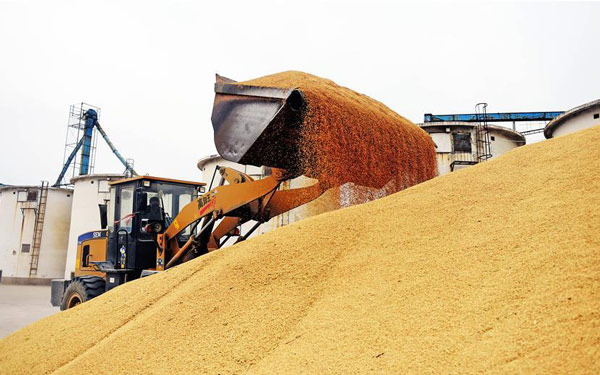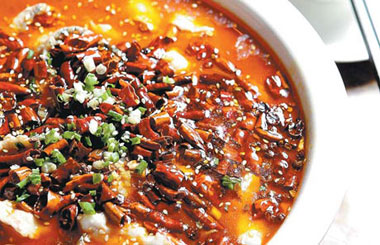Boost agricultural supplies
Updated: 2016-02-02 08:39
(China Daily)
|
|||||||||||
 |
|
A worker collects rice at a corn processing factory in Linghai, Northeast China's Liaoning province, Nov 19, 2015.[Photo/Xinhua] |
Bumper harvests can no longer guarantee handsome income growth for Chinese farmers, especially as global commodity prices have collapsed in recent years.
To eliminate "absolute poverty" in the country by 2020 and considerably narrow the development gap between rural and urban areas, Chinese policymakers must accelerate income growth for farmers.
This year's No 1 central government document, issued last week, has identified supply-side reform as a way to boost agricultural modernization in the long run.
In 2015, China's rural per capita disposable income increased 8.9 percent year-on-year to 11,422 yuan ($1,743), while their net income was only 5,919 yuan under the calculation in 2010. Such steady income growth is in tandem with the fact that China's total grain output increased 2.4 percent year-on-year to 621 million tons in 2015, the 12th straight year of growth. Nevertheless, this will be a thorny problem as the grain stockpile is surging.
Big inventories used to be deemed a good thing for China, the world's most populous country. But too high inventories are neither necessary nor economical to maintain nowadays. Worse, the purchasing prices for reserves remain above market prices, which have been brought down by the increasing imports, and this has sent a misleading signal encouraging more domestic supplies.
It is reported that the government has been studying measures to adjust the supplies of agricultural products, including whether to reduce its reserve purchasing price or to subsidize only the gap between market prices and farmers' costs.
Such an update to the current policy is certainly needed. But the more urgent task is to have a thorough reassessment of Chinese farmers' competitive edge in view of both the rising cost of agricultural labor at home and falling commodity prices globally.
While measures should be taken to protect farmers' interests so that the country will not suffer a major drop in grain production, comprehensive supply-side reforms must also be implemented to lower the costs for domestic agricultural production and provide more quality farm produce to satisfy the growing appetite of Chinese consumers.
Related Stories
China policy bank lends more to agriculture in 2015 2016-02-01 00:09
China eyes supply-side reform to boost agriculture 2016-01-29 10:33
Karamay agriculture industrial park gets autonomous region's recognition 2016-01-28 17:39
Modern agriculture lifts Guizhou farmers out of poverty 2016-01-21 09:55
Today's Top News
China manufacturing activity contracts for 6th month
Sanders plays down Clinton's hold over voters in Iowa
New China-led bank 'will be inclusive'
Horizons expand for Chinese companies in France
Negotiating political transition in Syria 'possible'
Man arrested with handguns at Disneyland Paris
Record number of Chinese tourists visited UK in 2015
Foreigners fill in Spring Festival courier gap
Hot Topics
Lunar probe , China growth forecasts, Emission rules get tougher, China seen through 'colored lens', International board,
Editor's Picks

|

|

|

|

|

|






